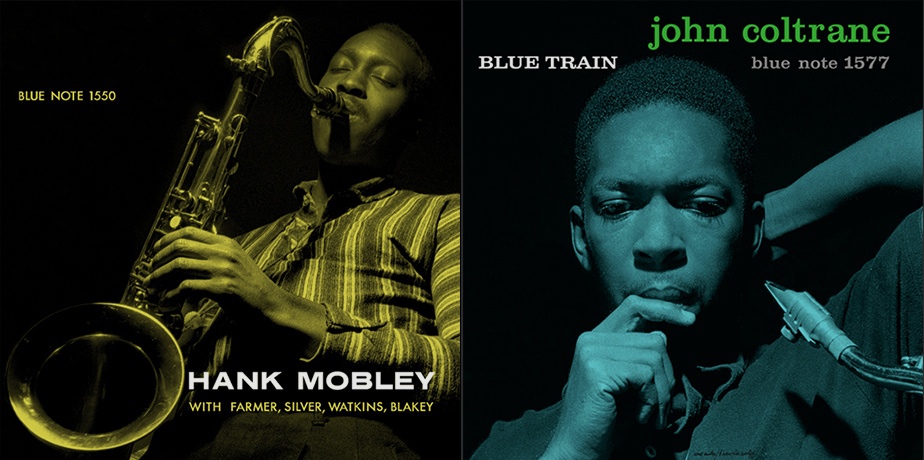Home » Jazz Articles » Record Label Profile » Music Matters slows it down
Music Matters slows it down

But for those who fancy themselves audiophiles as well as jazz fans it's hard to argue with Music Matters' results. The sound quality of these pressing has been truly exemplary, extracting more information from those tapes than virtually any prior pressing, analog or digital. In the process they've released what is likely the finest ever reissue of a significant portion of the Blue Note catalog.
Now, Ron Rambach, the owner of Music Matters, has done something that might have been unthinkable: He's extending the series, which itself is not all that surprising, but after years of loudly pronouncing the sonic superiority of 45s, he's switching to 33rpm vinyl. He claims that the new discs sound as good or even better than the original series.
Although the original series released close to 100 titles, it omitted some of Blue Note's most popular dates. Rambach's explanation was that there was enough great material in the catalog that it wasn't necessary to do yet another re-release of John Coltrane's Blue Trane or the other titles that are always available in multiple formats. Joe Harley, of the hi-fi cable maker AudioQuest and who's been involved with the series from the beginning, claimed that one of the goals of the original series was to bring out great titles that were under-heard and under- appreciated by the public. To that end they hit some of the other great titles that almost never see the light of day and wound up releasing things like Clifford Jordan's Cliff Craft; Gil Melle's Patterns In Jazz; and Louis Smith's Smithville. The Music Matters team took a genuine curatorial interest in the rarities.
With that accomplished it seemed like a good opportunity to revisit the bigger titles. The new series will include some of the more popular records, including Blue Trane, as well as Kenny Burrell's Midnight Blue; Lee Morgan's The Sidewinder; and Cannonball Adderley's Something Else.
The series opens with Blue Trane. But for a twist, Music Matters is offering the infrequently heard original mono version of John Coltrane's only recording for the label. The album was recorded in 1957 during a brief period when engineer Rudy Van Gelder was recording in parallel with both his existing monaural equipment and his newly arrived stereo recorder.
Fans of the label are well aware of the long-running debate about the relative qualities of mono vs. stereo Blue Notes. The debate revolves around Rudy Van Gelder's rigid baffling of instruments. The technique was great for mono recordings because it ensured that every instrument was distinctly audible in the mix, but applied to stereo recording it left instruments unnaturally isolated from each other in the sound stage, with hard panning to the left and right channels. The mono proponents think the stereo records sound unnatural in a way that can detract from the music. At the end of the day, though, it really comes down to whether the listener is bothered by such things. It's an esoteric argument, to say the least.
The stereo version of Blue Trane is—in the author's opinion— a very good Van Gelder stereo recording, suffering less from the unnatural sounding baffling effect than most titles. But the mono version for the new 33rpm, offers listeners the opportunity to hear a very famous recording from a different perspective. It's an open question whether the monaural recording yields an improvement over the imaging of the stereo version, and may just come down to a matter of personal taste.
What is not in question is the record's sonic qualities. Like all of the Music Matters titles this mono pressing has crisp clear sound that captures more detail than is usually heard from the date. Compared to another company's earlier 45rpm version (Blue Trane was not included in the original Music Matters series), the Music Matters mono 33 of Blue Trane does sound a little more vivid and immediate. The monaural presentation simply adds a worthwhile and infrequently heard juxtaposition to the more common stereo version.
The new 33rpm version of Sonny Clark's Cool Struttin' is an opportunity to make a direct comparison with the earlier Music Matters 45rpm issue. The sonic differences weren't especially noticeable, which isn't a bad thing considering that the 45rpm pressing was fantastic in the first place. Maybe a more sensitive turntable and hi-fi setup would have shown more dramatic difference between the two. Nevertheless, the 33rpm offers one big advantage over the 45rpm version. The longer per side play time means less jumping up and down to flip the record. It's really nice to listen to a whole side uninterrupted.
There's not much new to say about the music on Something Else and Midnight Blue except to note that they are such extraordinary albums that every jazz fan should be familiar with them. Like all of the Music Matters pressings, their treatment here is exemplary.
On Something Else, the sound of the horns is so clear: they simply cut through any electronic artifacts and burst out of the speakers. On the mid- tempo groove "One For Daddy-O" Davis wraps up by asking, "Is that what you wanted Alfred (lyons)?" Hell yes!!! Give us more, Miles!
Midnight Blue is the same story. Ray Barretto's palms on the congas sound like hands on leather; Stanley Turrentine, always dripping in blues, sounds like he's in the room; and Burrell's guitar tone has twangy detail that would be lost on a lessor pressing.
There is one other important and welcome development with this new series that's worth mentioning: The original 45rpm series were very expensive records. With only one platter per album these new 33rpm titles will be significantly less so. That's good news for folks trying to stretch their hard-earned music-buying dollar. Plus, although there is one less platter in the jacket, Music Matters has maintained the packaging of the old series. That is: very high quality printing on heavy gatefold covers with extra session photos included on the interior. Like the first series, the packaging is first class all the way.
Interviewed for a prior article on the series, Harley once stated that his favorite title was the one he just listened to. That continues to be one of the most amazing things about the Music Matters reissues: just when you think the last one was the best you'd ever heard, the next one comes out and challenges that conclusion. The 45rpm series was spectacular, receiving plenty of press as some of the best sounding Blue Note records ever pressed. The new series continues that sonic excellence in a more convenient format with the same outstanding packaging for less money. That sounds like a winner by any measure.
Tags
Record Label Profiles
Greg Simmons
United States
Music Matters
John Coltrane
Clifford Jordan
Gil Melle
Louis Smith
Kenny Burrell
lee morgan
Cannonball Adderley
Sonny Clark
Ray Barretto
Stanley Turrentine
PREVIOUS / NEXT
Support All About Jazz
 All About Jazz has been a pillar of jazz since 1995, championing it as an art form and, more importantly, supporting the musicians who make it. Our enduring commitment has made "AAJ" one of the most culturally important websites of its kind, read by hundreds of thousands of fans, musicians and industry figures every month.
All About Jazz has been a pillar of jazz since 1995, championing it as an art form and, more importantly, supporting the musicians who make it. Our enduring commitment has made "AAJ" one of the most culturally important websites of its kind, read by hundreds of thousands of fans, musicians and industry figures every month.
























